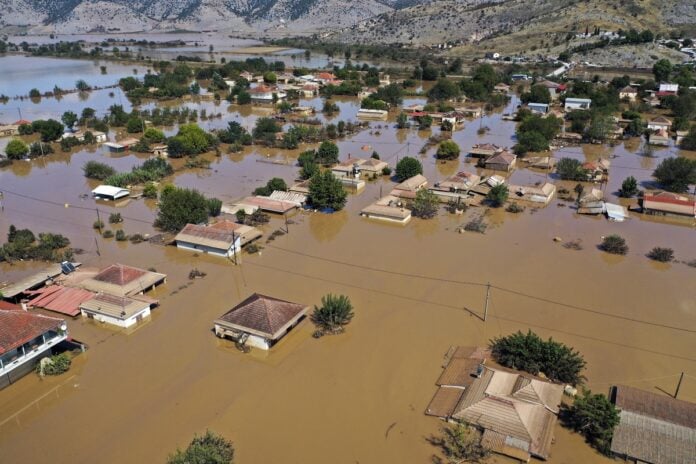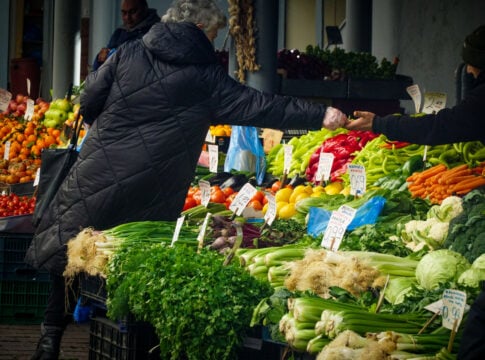It is estimated that the catastrophic flood in Thessaly will cause a reduction in domestic feta production by 10%-15%, which will have a direct impact on prices and consumption.
Domestic dairy industries are once again facing a milk crisis, however this time – in addition to the need to immediately restore operations in those businesses affected by the disaster – it is particularly important to protect feta exports in order not to “lose” its share in important markets.
The loss of livestock and the huge damage that farms in Thessaly suffered may lead many producers in the region to the decision to cease activity, which will significantly limit the dynamics of domestic sheep and goat farming.
As the president of the Hellenic Livestock Association, Panagiotis Peveretos, said in statements to “Naftemporiki”, “the reduction in feta production depends on the number of animals that have drowned in Thessaly. The first damage reports from farmers already place the loss at around 70,000 sheep and goats, a number that may further increase to 100,000. At the same time, many milk production units have suffered damages and need some time to re-open.
Asked about the future of milk prices and, by extension, feta cheese, Peveretos said that “there is no question of the sufficiency of feta cheese.” He added that a correction of the prices had started before the latest developments. However, the whole chain has been affected now and the loss in livestock will have an impact on the prices of both cheese and especially feta, as well as dairy products and meat in general.
On his part, the president of the Association of Greek Dairy Industries, Christos Apostolopoulos, speaking to “Naftemporiki”, pointed out that it is too early to estimate the losses in feta cheese production, however he argued that the reduction may be less than 10%. But, as he stressed, “the important thing at the moment is to protect goat and sheep farming as many breeders in Thessaly are frustrated and considering leaving the activity. The loss in livestock units is something that is not easily corrected. At the same time, it is imperative to restore operation in the factories that have suffered major damage as well as in the cheese factories in the area.”














